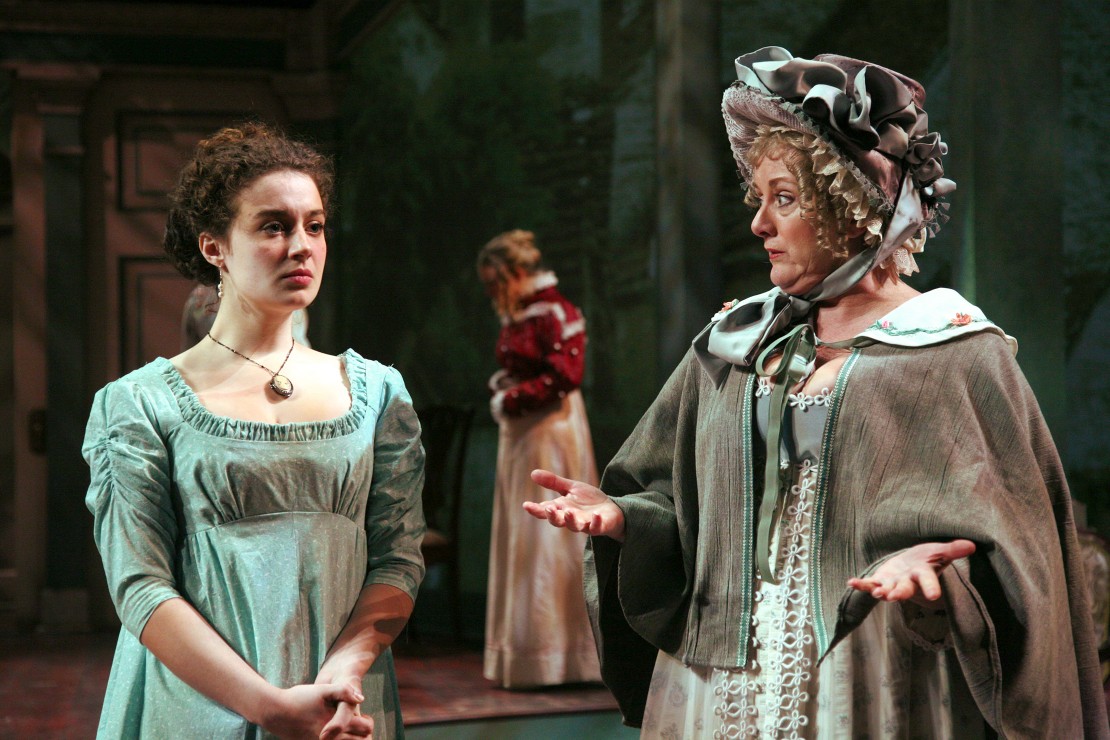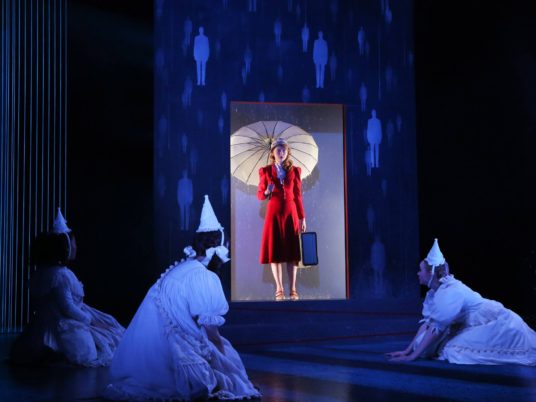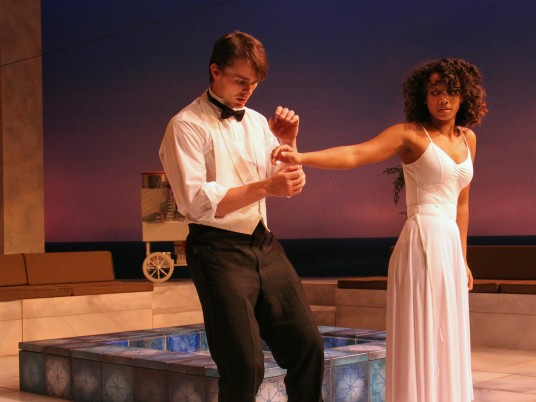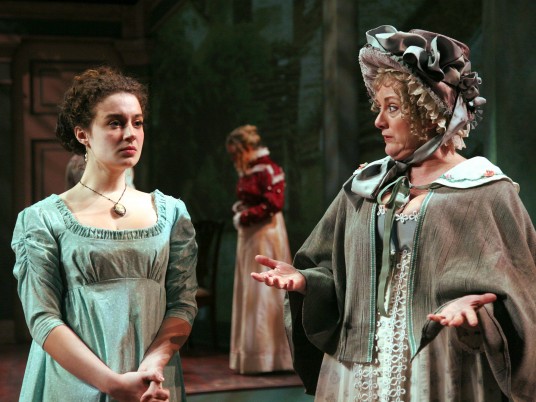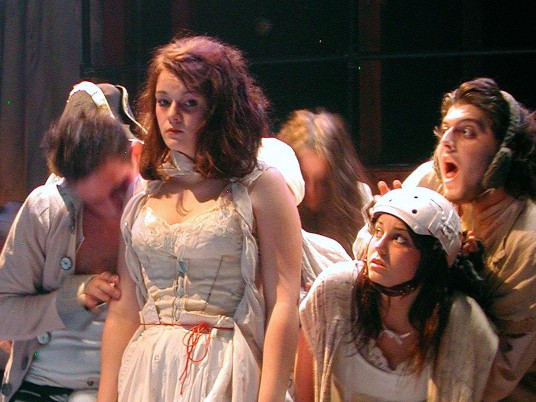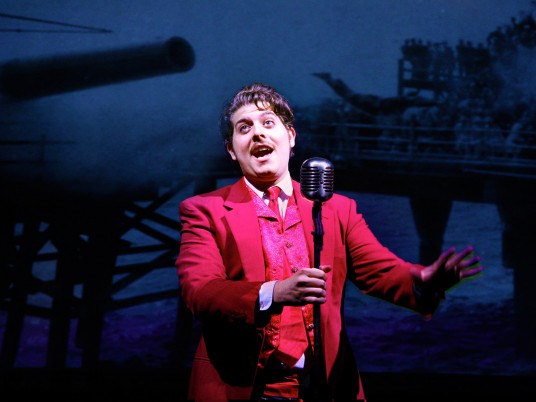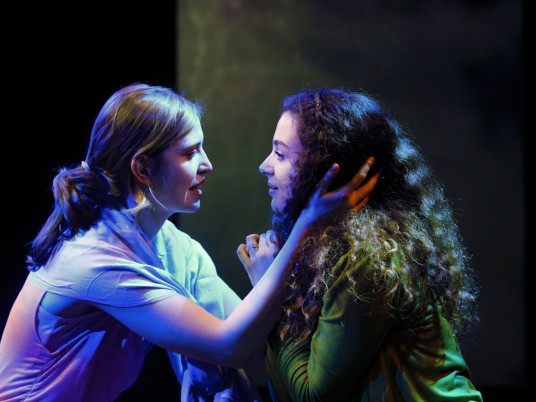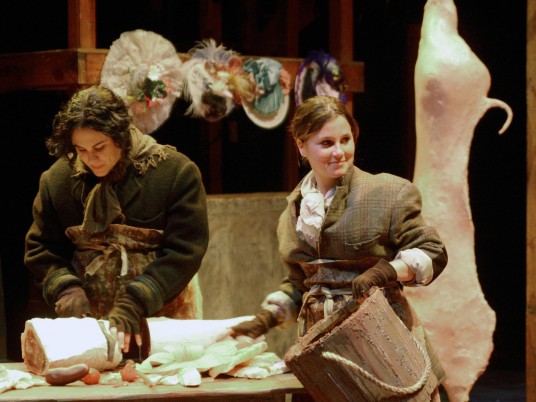Pride and Prejudice
This beautifully constructed play wrapped in wit and irony is not just a romance, but a subtle commentary on 1811 English domestic life. In the context of revolutionary upheaval abroad, my production of Pride and Prejudice raises questions about the marriage market and the strictures of class and gender. The audience will be drawn in by the quick, easy flowing action and the detailed characterizations, rich in humor and pathos. —Helene Kvale
Adaptation, Joseph Hanreddy
and J.R .Sullivan
Scenic Designer, Travis George
Costume Designer, Laura Crow
Lighting Designer, David O. Smith
Sound Designer, Jack Nardi
Choreographer, Christine Gambardella
Photographer, Gerry Goodstein
and J.R .Sullivan
Scenic Designer, Travis George
Costume Designer, Laura Crow
Lighting Designer, David O. Smith
Sound Designer, Jack Nardi
Choreographer, Christine Gambardella
Photographer, Gerry Goodstein
East coast premiere:
Connecticut Repertory Theatre
Why does Pride and Prejudice have such global appeal?
Elizabeth Bennet is, to quote Mary Wollstonecraft, a “rational creature speaking the truth from her heart.” She advocates self-reliance and follows Wollstonecraft’s ideal of what women should be allowed to be and in spite of Elizabeth’s outspoken, stubborn, convention-defying nature, Darcy falls in love with her. In spite of the class difference, and the fact that many think she will “pollute the shades of Pemberley”, he values her. She matches Pemberley, an estate that is described as a place where “natural beauty had been so little counteracted by an awkward taste.” The appeal of the novel lies in the fact that Austen advocates affection and acceptance in marriage, whilst remaining true to oneself. She hopes that romantic love can trump social and economic differences. This was a groundbreaking idea at the time and will be highlighted in our production. —Helene Kvale, First Rehearsal
Elizabeth Bennet is, to quote Mary Wollstonecraft, a “rational creature speaking the truth from her heart.” She advocates self-reliance and follows Wollstonecraft’s ideal of what women should be allowed to be and in spite of Elizabeth’s outspoken, stubborn, convention-defying nature, Darcy falls in love with her. In spite of the class difference, and the fact that many think she will “pollute the shades of Pemberley”, he values her. She matches Pemberley, an estate that is described as a place where “natural beauty had been so little counteracted by an awkward taste.” The appeal of the novel lies in the fact that Austen advocates affection and acceptance in marriage, whilst remaining true to oneself. She hopes that romantic love can trump social and economic differences. This was a groundbreaking idea at the time and will be highlighted in our production. —Helene Kvale, First Rehearsal
view: more production preview / behind-the-scenes video / photo montage / read reviews
